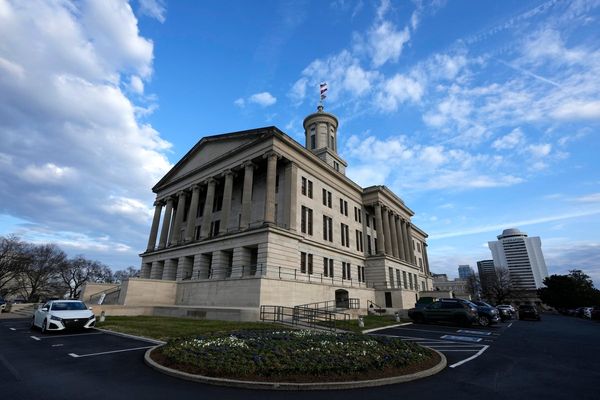The cards and artwork that Maggie Luna’s children sent to her in prison helped her make it through her sentence. “It was one of the few things I had to look forward to,” she says.
Now new mail and visitation rules in Texas prisons could further restrict what little contact family members have with loved ones in lockup. On Tuesday, without much discussion, the Texas Board of Criminal Justice approved rule changes aimed at cracking down on contraband, including a ban on sending inmates greeting cards and expanding drug dog searches to visitors. As Luna, a policy fellow with the Texas Criminal Justice Coalition, told the board during the meeting, “We’re concerned that the family members are going to suffer.”
Inmate family groups and civil rights advocates began to push back against the new rules when the Texas Department of Criminal Justice proposed them last month. In addition to citing the dubious reliability of drug-sniffing dogs, critics say the focus on visitors is misplaced: Contraband often flows behind bars through prison staff, and inmates are already searched before and after visits. Ahead of this week’s vote, more than a dozen organizations, including the Texas Civil Rights Project and the ACLU of Texas, signed a letter urging Texas Board of Criminal Justice Chairman Patrick O’Daniel to reconsider the changes, calling them “detrimental and counterproductive to the rehabilitation efforts of incarcerated individuals.”

TDCJ is only the latest correctional agency to further restrict prisoners’ interactions with the outside world to fight contraband. The new rules, which go into effect March 1, ban all greeting cards and any mail to prisoners that isn’t on standard white paper—“colored, decorated, card stock, construction, linen, or cotton paper will be denied,” along with any mail containing stickers, paint, or glitter. The agency says cards and other artwork can be used to smuggle illicit substances like K2. At Tuesday’s meeting, TDCJ Executive Director Bryan Collier said people will soon be able to purchase compliant cards through a private company, though the agency didn’t have further details after the meeting.
After backlash from families and advocates, prison officials had already tweaked the new visitation policies ahead of the board approval on Tuesday. Drug-sniffing canines will now search visitors, who will then be turned away if a dog alerts; loved ones will not, however, be kicked off a visitation list and banned from future visits if a dog alerts during more than one trip, as the agency had first proposed.
While family members call the new drug-dog policy intimidating and fear it could discourage people from visiting, TDCJ spokesperson Jeremy Desel stressed that dogs and visitors are separated by a fence during searches; the agency posted a video demonstrating some of the new protocols late Tuesday. According to Desel, TDCJ caught 300 visitors and 53 staff members with contraband in 2019. Desel didn’t clarify whether those were allegations of contraband or confirmed cases followed by either criminal charges or disciplinary action. He said drug dogs started searching prison staff in October.
Jennifer Ershabek, executive director of the Texas Inmate Families Association, told the prison board on Tuesday that the new policies could further isolate some of the state’s most vulnerable prisoners. Around Christmas and other holidays, she says, some volunteers help indigent prisoners who don’t have support on the outside; in addition to banning cards, TDCJ’s new rules also restrict who can deposit funds into commissary accounts. Under the new policy, only people on an inmate’s call or visitation list can send money.
Ershabek says people with loved ones in prison share officials’ desire to prevent contraband but also want policies that foster their connections with the outside world. “We are concerned about our loved ones’ safety, we’re concerned about the officers’ safety, our biggest goal is for everyone to come home alive,” Ershabek said. “But mail and visits are lifelines. We need to be careful not to disrupt those critical lifelines.”
Read more from the Observer:
-
In the Trump Era, Practicing Immigration Law is Like ‘Swimming in Molasses’: Veteran attorney Elise Harriger is learning how to lose, but she vows to keep on fighting.
-
ACLU Sues East Texas Towns Over ‘Sanctuary City for the Unborn’ Ordinances: The lawsuit was filed on behalf of two abortion access groups that were named “criminal organizations” by the local ordinances.
-
‘Trans Pecos’ Is a Beautiful Plea to Protect West Texas: This visually striking film captures the innate beauty of far West Texas and the threats posed to it by oil and gas infrastructure.







